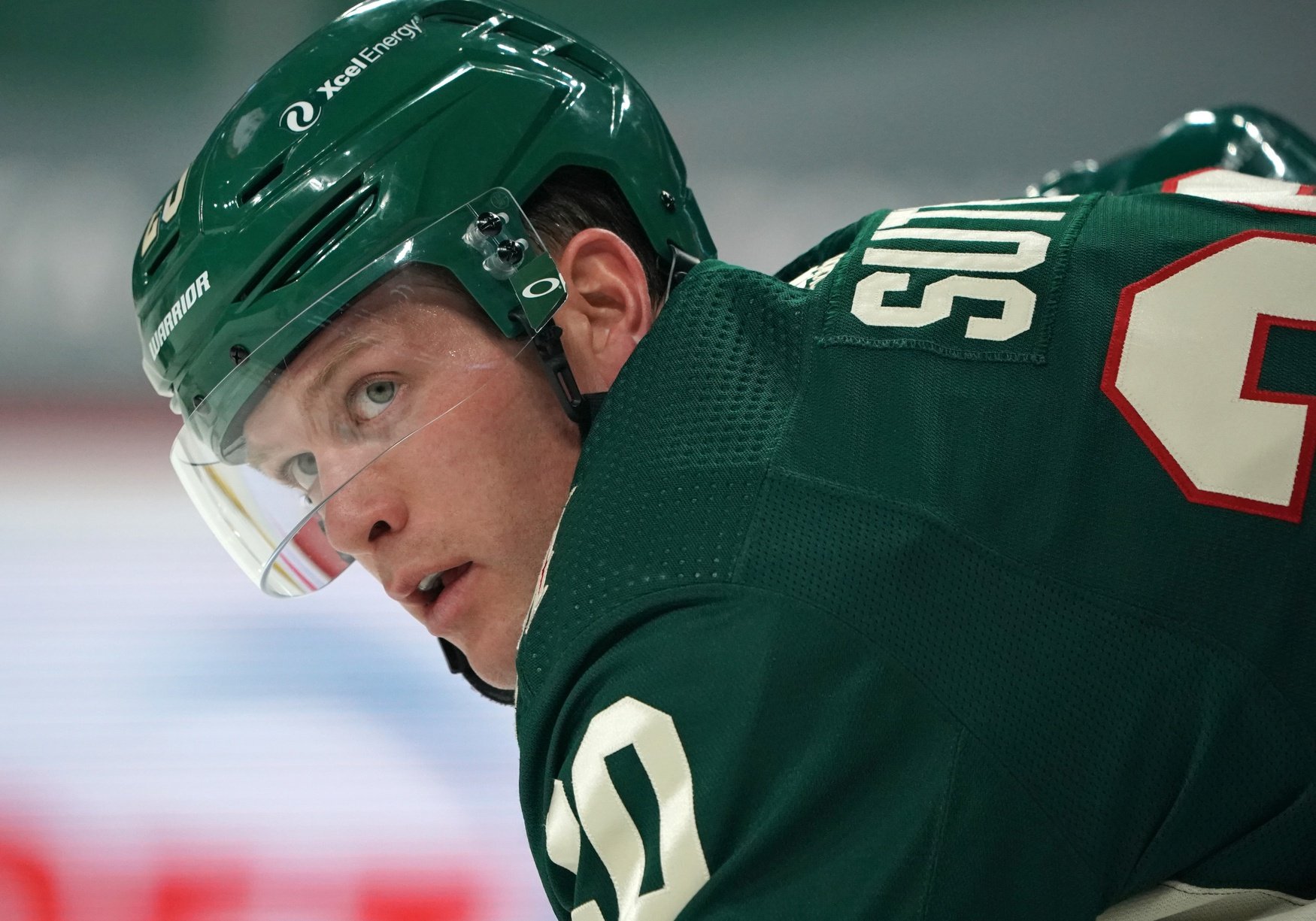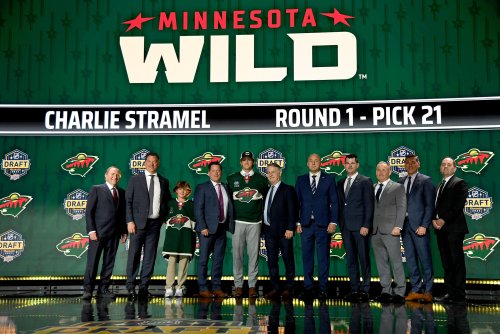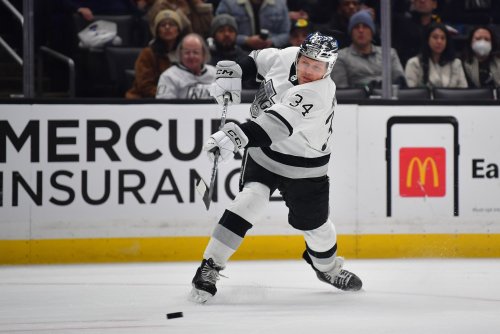
In the days of Twitter, where NHL Insiders deliver information at all hours, it’s hard to drop true bombshells. When something big happens, usually someone is tipped off by a player, agent, or general manager, and takes it public. Oftentimes, the rumors start trickling out weeks in advance.
But on Tuesday morning, Bill Guerin revealed a secret that was months in the making, and in doing so, dropped two bombs that reverberated across the entire hockey universe. Zach Parise and Ryan Suter were bought out, ending an era in the State of Hockey at a potentially terrible cost.
Most expected the Wild to part ways with Parise this summer, so his buyout wasn’t necessarily a surprise. The 36-year-old struggled to score, netting just seven goals on two shots per game over 45 games. Was the veteran finally cooked? Or was he so far in Dean Evason’s doghouse that he wouldn’t get a prime opportunity again? There’s no real difference, and it was time to move on.
Buying out Suter is a different story. It was a move that shocked everyone, including Suter himself. Per The Athletic’s Michael Russo, his first inkling of being bought out didn’t come until GM Bill Guerin called him on Tuesday morning. He was reportedly so stunned and angry that he hung up the phone.
Why was Suter’s buyout so bewildering? Because he was pretty good last season. He played 22 minutes per night and acquitted himself pretty well, still managing to drive offense. He’s part of a top-4 defensive unit alongside Jared Spurgeon, Jonas Brodin, and Matt Dumba that has lasted over half a decade.
Understandably, Parise may have had to go. But Suter? Why bother taking on such a burden to buy out a perfectly decent player? Let’s investigate.
Bill-ichick
Guerin only has two years with the Wild under his belt, making it hard to recognize patterns. But one philosophy shines through, and it’s one that he shares with — this feels so gross to say, I’m so sorry — the most successful football franchise ever, the New England Patriots.
Coach/GM/God-King Bill Belichick has long operated under the maxim, “Better to get rid of a player a year early than a year late.” He’s swapped out many perfectly great players before they’ve declined, returning assets that he then uses to backfill his roster. This preserves maximum flexibility; Belichick is rarely stuck with a bad player who he can’t move.
Guerin’s followed this same path at every opportunity. He flipped Jason Zucker when he was scoring at a 25-goal pace for two premium assets. The next year, Zucker struggled through an injury-riddled season and may find himself exposed in expansion.
Then he moved Eric Staal this offseason after he scored 19 goals and 47 points in 66 games. The trade wasn’t made because of salary reasons; Staal had only one year left on an extremely affordable contract. Guerin didn’t even get much for him, just one year of Marcus Johansson, who flopped. He simply took an opportunity to move on from Staal, who finished the year with minus-two Wins Above Replacement, dead-last in hockey.
In fact, the only reason he was in a position where he had to buy out Parise was that he failed to move him to the New York Islanders. People thought it was ill-advised to trade a productive Parise for a broken-down Andrew Ladd. Now that doesn’t look so bad.
After all that, why wouldn’t Guerin pull the trigger on moving Suter now rather than risk a steep decline later?
Let Spurgeon Run the Show
In the half-decade since being brought together in 2015-16, Suter and Spurgeon have been one of hockey’s best defensive pairings. They consistently drove play, controlling a 55-plus% expected goal share at 5-on-5 in every year they’ve been together. They play massive minutes in all situations.
What made the two a perfect pair? They were both good at everything. Both could carry the puck, had exceptional defensive positioning, and both could put up points. It enabled either one to jump into the play with confidence, knowing the other would cover them.
That started shifting as Suter got older, particularly after his traumatic ankle injury in 2018. As Suter got less mobile, his defensive ability began to decline. He used to handle forwards on the rush with ease; now, he was getting beat more regularly. As a result, he seemed to focus primarily on offense, scoring a career-high 0.7 points per game in 2019-20.
This left more and more of the defensive burden on Spurgeon. Granted, he could handle it. The pair still controlled 54.9% of expected goals this year, a barely perceptible drop-off. But it seemed to hamper Spurgeon offensively. He was fine but not great at driving offense, and his points-per-game rate was its lowest since 2015-16.
It’s going to be hard to find a defensive partner for Spurgeon as well-rounded as Suter was, especially on a shoestring budget. Still, Spurgeon is more than capable of handling the offensive and transition load himself. Does he need much more than a decent defender to skate alongside? Guerin’s betting that he doesn’t and that he may even shine brighter now that he doesn’t have to carry Suter.
Rip the Band-Aid Off
When the news was announced, one may have thought Suter might’ve wanted out once it was clear Parise was headed out the door. After all, he’s the last of the Wild’s old veteran core: Parise, Mikko Koivu, Staal, and Devan Dubnyk. Judging by his reported response to the news, that’s not the case. Certainly not in the moment.
It’s certainly interesting to ponder whether this will ultimately be the best for him and the team, though. Suter may have been pissed off by the news, but did a happy ending in Minnesota really await him? Would he have been happy as the last dinosaur of the Wild’s Old Guard roaming the Xcel Energy Center?
Maybe, maybe not. And the Wild clearly didn’t want to risk the latter. The Parise split was protracted and ugly. If a declining Suter suddenly got no power-play time or was demoted to third-pair duties, Minnesota would’ve opened themselves to replay this scenario all over again. It’s not the kind of drama you want overshadowing a youth movement.
It’s a painful but perhaps necessary goodbye. Suter and Parise gave nine of the best years of their careers to the Wild. Their high level of play deep into their contracts warrants respect. Still, after nine years, all Minnesota has to show for it is two playoff series wins. Pin it on whatever you’d like, but the truth is this era of the Wild fell short of expectations. Closing in on age-37, the duo certainly wasn’t getting likelier to elevate this team to contention.
Sometimes you’ve just lost and have nothing to gain by continuing further. Was it worth holding onto this bygone era, or is the organization better off long-term for severing those ties in a single day?
We’ll see.
All data is from Evolving Hockey unless otherwise stated.
Think you could write a story like this? Hockey Wilderness wants you to develop your voice, find an audience, and we'll pay you to do it. Just fill out this form.






Recommended Comments
There are no comments to display.
Join the conversation
You can post now and register later. If you have an account, sign in now to post with your account.
Note: Your post will require moderator approval before it will be visible.